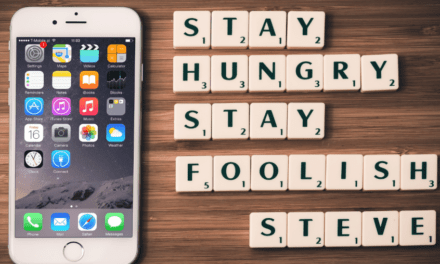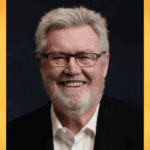Doctors often see us at our most vulnerable, whether we’re beaten down by a persistent head cold or saying goodbye to loved ones. They know our intimate inner workings (literally) and they are often present at life-changing moments, like discovering a pregnancy or a serious illness. These moments of intimacy, which doctors have on a daily basis, also happen to be the stock-in-trade of creative writers: the instances our humanity is most visible and vibrant. With a few notable exceptions (Anton Chekhov chief among them), however, doctors and writers tend to be placed on remote ends of the intellectual spectrum — one end analytical and rational, the other intuitive, abstract and emotional.
But there is a growing number of people within the medical community who think the separation of the disciplines is nonsensical — and more importantly, a missed opportunity. Melbourne GP and author Melanie Cheng is one of those people.
“A good fiction writer is, by definition, putting themselves inside the head of someone whose life experience is not their own,” she says. “And I think a good GP, in particular, should really be trying to see the world from the view of the patient that’s sitting across from them.”
The reality of life as a clinician, though, is quite different. “They have done some studies that looked at the levels of empathy in medical students before they enter medical training and at the end of it, and their empathy levels actually seem to drop,” Cheng says. “I think it may be a bit of a coping mechanism, because if you get emotionally involved in every single patient’s life, that could be quite a burden to bear.”
But for Cheng, whose first novel Room for a Stranger came out recently, creative writing is an opportunity to exercise the imaginative muscle that she uses to better treat and care for her patients. “I don’t feel like I’m switching brains or modes when I go from work to home and start writing,” she says. “I think they [medicine and writing] enhance and complement each other, and they come from the same essential place.”
Happier doctors
Cheng broke on to the Australian literary scene in 2017 with Australia Day, a collection of short stories that won the Victorian Premier’s Literary Award for Fiction. Born in Adelaide and growing up in Hong Kong, she had been writing informally since high school, but went on to study medicine, graduating in 2003. Upon completing her GP training, Cheng found she had some unexpected time on her hands. “I found this Creative Doctors network … that was started by a doctor call Tony Chu. So I made the effort, I didn’t have kids at the time, I went along to one of their meetings,” she says.
What Cheng found at these conferences “invigorated” her: “They were doctors that were doing writing, photography, painting, performance. Tony Chu himself was this screenplay writer,” she explains. “I’d been used to going to the hospital wards and seeing a lot of these very tired and very grumpy and overworked doctors, and even in general practice, a lot of really burnt-out GPs. “What struck me when I went to see this Creative Doctors network was that they really seemed happy — and it was a bit of a light-bulb moment.”
Hilton Koppe, a GP with almost three decades’ practice and involvement in training medical professionals, had his own light-bulb moment 16 years ago: he uses writing exercises in his sessions to replenish his trainees’ “wells”, or stores, of empathy. “[As health professionals] we’re asked … to be present for others, and to bear witness to their suffering,” he explains. For GPs, this kind of transaction might happen “20, 30, 40 times a day, sometimes more,” he says. “It’s tiring, and it’s easy for the well to become empty.”
A typical exercise in one of Dr Koppe’s training sessions might involve asking his students to write up a patient-doctor scenario in narrative form, and then identify what emotions each “character” might be feeling. “And then we play with the words, and the emotions also to create some metaphors and poems … it’s amazing what they come up with.” Dr Koppe says that, in general, trainees have been “incredibly positive” about the experience.
He speculates that part of the reason might be neurological: “The traditional medical way … you follow a linear approach. This is sort of opening it up into a slightly different way of exploring things,” he says. “It probably releases different neurochemicals that make people feel a bit happier or alert or awake.” Dr Koppe also points to a number of studies that suggest reflective writing practices have an impact on our physical health, in particular the immune system and responses to pain and viral illnesses.
Healthier patients
“[In] my undergraduate training … I didn’t receive a lot of teaching about empathy at all,” Cheng reflects. “It was all about symptoms and signs, and occasionally people would talk about an holistic approach, but it was almost done in a kind of dismissed way at the end, as an add-on.” Cheng thinks this cavalier approach to human connection, combined with enormous time and resourcing pressure, results in doctors who don’t give enough time to a patient’s perspective. She points to a study that says, on average, doctors wait only 11 seconds into a consultation before cutting a patient off with a close-ended question.
Increasingly, however, the medical profession is recognising that a patient’s perspective is key not only to their experience, but to effective care. “There’s this whole discipline called narrative medicine, which recognises that illness unfolds through stories and that at the core of medicine is the patient’s account of their illness and the clinician’s ability to skilfully receive that story,” Cheng says. “The theory is that if you listen in an efficient way to the patient’s story, you will reach the diagnosis much more quickly.”
When she was involved in training registrars, Cheng and her colleagues asked that the doctors-in-training not cut a patient off for two minutes. “They found it excruciating, because two minutes seems like a long time to listen to the patient’s story when it’s a 15-minute consultation,” she says. But the technique shifted the trainees’ perspectives. “I think most of the registrars appreciated that they got more information when the patient was allowed to tell the illness in their words, than they did from trying to nut it down to clinical symptoms,” she says. “It gives it much greater and richer context to the disease.”
Dr Koppe says that humanistic approaches to medicine are getting greater traction in Australia’s tertiary institutions — but that the university sector’s increasingly mercantile approach to education is impeding this progress. “The [mostly] financial pressures to train the largest number of people, in the shortest possible time, with the least expense … the opportunities for really deeper transformational learning, which is what’s required for these kinds of things to happen, in fact, become less,” he says.
A clearer perspective
In Macca, the third story in Cheng’s Australia Day, Dr Garrett — described as an “idealistic registrar” — struggles to help an older patient (Macca) with alcohol addiction. While Cheng’s stories are “always fictionalised accounts”, Dr Garrett’s experiences do mirror her own. “The patient did quite well for a time, but then they fell off the wagon, as often happens, and … as a junior doctor, I took that to be a real failure on my part,” she says. “I’d had such great hopes of changing this person’s life through my consultation.”
It wasn’t until she sat down to write a story about her experiences that Cheng had a realisation. “I was making this patient’s recovery someway about me and how good I was as a doctor,” she says. Now she takes a longer perspective on the patient-doctor relationships. “You’re with these patients over a long period of time, and you can’t see these episodes of care as being what’s going to change the trajectory of their lives forever. It’s about actually being there in the long term,” she says. “The writing of that story that helped me to understand that, and to understand where the patient was coming from.”
Source: https://www.abc.net.au/news/2019-06-04/doctors-creative-writing-melanie-cheng-narrative-medicine/11172788 | Reproduced for educational purposes.










